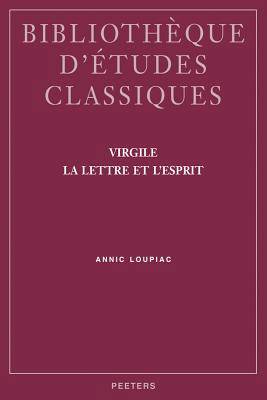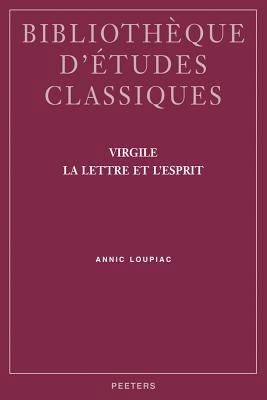
Je cadeautjes zeker op tijd in huis hebben voor de feestdagen? Kom langs in onze winkels en vind het perfecte geschenk!
- Afhalen na 1 uur in een winkel met voorraad
- Gratis thuislevering in België vanaf € 30
- Ruim aanbod met 7 miljoen producten
Je cadeautjes zeker op tijd in huis hebben voor de feestdagen? Kom langs in onze winkels en vind het perfecte geschenk!
- Afhalen na 1 uur in een winkel met voorraad
- Gratis thuislevering in België vanaf € 30
- Ruim aanbod met 7 miljoen producten
Zoeken
Omschrijving
English summary: Despite his Epicurean education and lexical and poetic borrowings from the Letter of Lucretius present in all his works, Virgil's works display, in his willingness to engage, his rejection of passions, his conception of a universe governed by the mind, his Apollonian moral and poetic ideals, his justice and harmony, and a way of thinking that is closer to Pythagoras than to Epicurius. He creates poetry as a means in and of itself: not just a medium, but a creation, and the perfect way to reflect the image of the cosmos and what governs it. Such a high ideal is unfortunately unattainable: the incompletion of the Aeneid and the reception of Virgil's work by the Elegians and Lucian confirm both the supremacy of the Prince of Poets and the failure of his aspirations. French text. French description: En depit de la formation epicurienne de Virgile et des emprunts lexicaux et poetiques a la lettre de Lucrece, presents dans toute son oeuvre, sa volonte d'engagement, son rejet des passions et de la Venus erotique, sa conception d'un univers regi par la mens, son ideal apollinien de labor moral et poetique, de justice et d'harmonie manifestent un esprit plus proche de Pythagore que d'Epicure. Il fait surtout de la poesie une fin en soi, non plus moyen mais creation et forme parfaite a l'image du cosmos et du nombre qui le regit. Un ideal si haut est malheureusement inaccessible: l'inachevement de l'Eneide et la reception de l'oeuvre par les Elegiaques et Lucain consacrent a la fois la suprematie du Prince des Poetes et la faillite de ses aspirations.
Specificaties
Betrokkenen
- Auteur(s):
- Uitgeverij:
Inhoud
- Aantal bladzijden:
- 434
- Taal:
- Frans
- Reeks:
- Reeksnummer:
- nr. 55
Eigenschappen
- Productcode (EAN):
- 9789042920194
- Verschijningsdatum:
- 1/02/2008
- Uitvoering:
- Paperback
- Formaat:
- Trade paperback (VS)
- Gewicht:
- 475 g

Alleen bij Standaard Boekhandel
+ 283 punten op je klantenkaart van Standaard Boekhandel
Beoordelingen
We publiceren alleen reviews die voldoen aan de voorwaarden voor reviews. Bekijk onze voorwaarden voor reviews.









